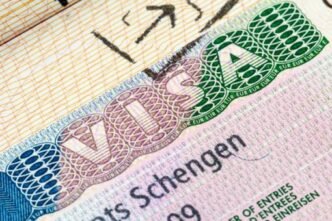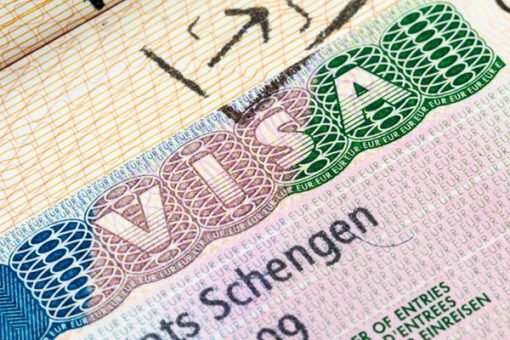In the latest twist over Nigeria’s contentious tinted-glass permit regime, the Nigeria Police Force, via its Force Public Relations Officer (FPRO), has stated it has not yet received any court order mandating enforcement of tinted-glass permits. The declaration adds a new layer of uncertainty on a policy that has already drawn public scrutiny, legal debate, and confusion among motorists.
As the enforcement deadline looms and tensions escalate, the police’s latest position raises questions about legality, readiness, rights, and how this policy may evolve. This feature unpacks the background, assesses the stakes for motorists, explores legal challenges, and charts possible outcomes.
The Background: Tinted-Glass Permits Reintroduced in 2025
The tinted-glass permit regime is not entirely new. Earlier in 2025, the Nigeria Police Force (NPF) reactivated its digital tinted glass permit (TGP) system, citing security concerns over vehicles with darkened windows being used for criminal acts like kidnapping, armed robbery, and “one-chance” scams.
On April 30, 2025, the NPF announced the resumption of permit issuance via its online platform, urging motorists to regularize their tinted windows. A grace period of 30 days from May 1 was granted to facilitate compliance without immediate enforcement.
Shortly after the grace period, the force asserted it would begin enforcement nationwide. But public feedback, complaints, and logistical issues prompted extensions of the enforcement deadline, with the most recent deadline pushed to October 2, 2025.
Under the reactivated TGP system, motorists are to apply online using their National Identification Number (NIN), Bank Verification Number (BVN), or Tax Identification Number (TIN). After uploading documents, vehicle inspections and biometric (fingerprint) captures will be scheduled at designated police commands or intelligence departments. The approved permits are to carry QR codes enabling rapid verification by officers.
The police argue the measure balances legitimate tinted-glass usage — for example, for health, privacy, or security reasons — with public safety.
The FPRO Statement: No Court Order Yet
Despite these moves, the FPRO has now publicly declared that the police have not yet received any court-sanctioned mandate to enforce tinted-glass permit regulations.
According to the FPRO, until a legal instrument (court order) is served, the police are constrained not to deploy full enforcement against motorists. This suggests a reluctance to act without judicial backing, especially amid mounting public complaints and legal threats.
The FPRO’s stance raises a number of key considerations:
- Legitimacy & Authority — Does the police’s regulatory directive on tinted-glass permits require judicial backing to be enforceable?
- Due Process & Motorist Rights — Should motorists be penalized before courts rule on whether the tinted-glass permit regulation is constitutional or lawful?
- Operational Readiness — Is the police machinery fully set to handle nationwide enforcement (training, digital verification, checks for abuse)?
- Risk of Arbitrary Conduct — Without clear court backing, there is a higher risk of extortion, abuse, or arbitrary stops of motorists, which the police have been warned against.
In effect, the police appear to be signaling that enforcement should not proceed until the judiciary gives a formal nod.
Motorists and Public Reaction: Anxiety, Confusion, and Critique
The tinted-glass permit regime has generated unease among car owners. Many say they remain in the dark about enforcement plans and fear harassment or extortion by law enforcement agents.
One private car owner interviewed on the eve of previous enforcement deadlines expressed frustration: “In a matter like this, the police should notify motorists clearly. Instead, we wait in suspense. We know how checkpoints go — someone may use this to extort money.”
Others have noted that some vehicles come from the manufacturer with factory-fitted tints, yet such motorists have also been stopped and told to remove tints or pay fees.
Critics of the tinted permit policy argue that it has revenue implications: the police could generate billions of naira annually if regular renewals and mass compliance come through. Some motorists view the regime as another form of indirect taxation under the guise of security.
There is also concern that motorists in remote or rural areas (with poor internet access) will be disenfranchised, unable to access the digital application system, further widening inequality.
Given the postponements and shifting deadlines, many see the tinted-glass permit policy as being introduced without sufficient stakeholder engagement or infrastructure readiness.
Legal and Constitutional Considerations
The police’s insistence on a court order before enforcement implicates deeper legal questions:
1. Statutory Authority vs Judicial Mandate
For any regulatory measure to bind citizens, law enforcement must be backed by statute or executive regulation grounded in law. If the tinted-glass permit requirement lacks clear legislative backing or has not been affirmed by courts, its enforceability can be contested.
The police citing the need for a court order suggests they anticipate legal challenge — or that courts may, on motion, restrain enforcement until arguments are adjudicated.
2. Fundamental Rights & Due Process
Motorists may argue that being penalised (fines, impoundments, detention) without prior judicial hearing violates their rights to fair hearing, liberty, and property under the Constitution. Enforcement before a court reviews the regulation may be seen as overreach.
3. Judicial Review & Stay Orders
If a court is seized of a case challenging the tinted-glass permit regime (its constitutionality, proportionality, or procedure), the court could issue an injunction or stay preventing enforcement until resolution. The police, by waiting for a court order themselves, may be preemptively hedging against such judicial restraint.
4. Separation of Powers
The police executing policy without court orders (or in tension with pending litigation) may raise separation of powers concerns — legislative authority vs executive enforcement vs judicial oversight.
Potential Scenarios and Outcomes
Given the current impasse and FPRO’s statement, several possible paths forward emerge:
A. Court Order Arrives, Enforcement Begins Immediately
If a court grants the police permission, perhaps through an ex parte order or ruling in a pending case, the police may act swiftly nationwide to enforce tinted-glass permit compliance. Motorists who fail to regularize might face fines, impoundments, or other sanctions.
B. Litigation Delays Enforcement
If the courts issue stays or injunctions while matters are argued, enforcement may remain suspended for weeks or months, until final judgment.
C. Policy Revision or Suspension
Public pressure, legal objections, implementation challenges, and police caution may prompt the government or the police to scale back, suspend, or revise the tinted-glass permit policy. That could include further extensions or partial enforcement (e.g., in high-risk zones only).
D. Compromise or Phased Implementation
A possible middle ground is phased enforcement — starting in major urban centres or high-security zones — and giving more time or exceptions to low-risk motorists or those in remote areas.
E. Full Implementation but High Litigation Risk
The police may proceed despite lacking a court order, risking lawsuits, public backlash, and threats of court sanctions or damages.
What Motorists Must Do Now
Given the prevailing uncertainty, vehicle owners should take steps to safeguard themselves:
- Apply for the permit early via the official portal to show good-faith compliance, even if enforcement is delayed.
- Keep proof of application or approval on hand (QR-coded permit, digital receipt, etc.).
- Avoid shady intermediaries or paying bribes — insist on official channels and report extortion.
- Monitor legal developments — stay updated on court rulings or notices about tinted-glass permit enforcement.
- Prepare legal standing — if challenged, have your documents (vehicle registration, proof of application, receipts, etc.) ready.
- Be prudent at checkpoints — show your permit or application receipt, but avoid confrontation.
Why the Police Are Cautious
The FPRO’s stance reflects a mixture of operational, legal, and reputational caution:
- Fear of judicial rebuke — enforcing before courts weigh in could expose the police to suspension or court orders.
- Risk of abuse allegations — tinted-glass checks have historically been associated with harassment and extortion; acting without court backing might compound accusations.
- Verification & infrastructure gaps — digital system glitches, delays in biometric capture, network issues, and manpower constraints may make enforcement uneven or chaotic.
- Public backlash — enforcing without clear authority or readiness may spark protests and loss of public confidence.
By signaling they await a court order, the police may be attempting to shield themselves from legal liabilities or blowback.
Broader Implications & Lessons
- Policy design needs alignment with law and courts. Security-driven policies must be grounded in statute, with clear rules and oversight to prevent abuse.
- Transparency and public communication matter. The uncertainty, shifting deadlines, and silence from enforcement agencies hurt trust.
- Digital readiness is critical. For nationwide regulation, digital systems must be robust, accessible, and equitable.
- Rights protections must be prioritized. Citizens must be safeguarded from arbitrary enforcement, extortion, and rights violations.
- Stakeholder engagement is essential. Motorists, civil society, legal experts, and enforcement agencies should be involved in shaping implementation.
Conclusion
The FPRO’s statement that the police have not received a court order on tinted-glass permits deepens the uncertainty around a policy already fraught with controversy. With the enforcement deadline approaching, motorists remain unsure whether they will be penalized, and courts may yet intervene to clarify legality.
For now, the tinted-glass permit regime exists in a liminal space — active in application mode but uncertain in enforcement. Its future rests on legal rulings, police readiness, public compliance, and political will.
As the next days unfold, whether court orders will arrive, enforcement will commence, or the policy will be delayed further, all eyes will be on the judiciary, the Nigeria Police, and the courts’ view of balancing security with rights.














